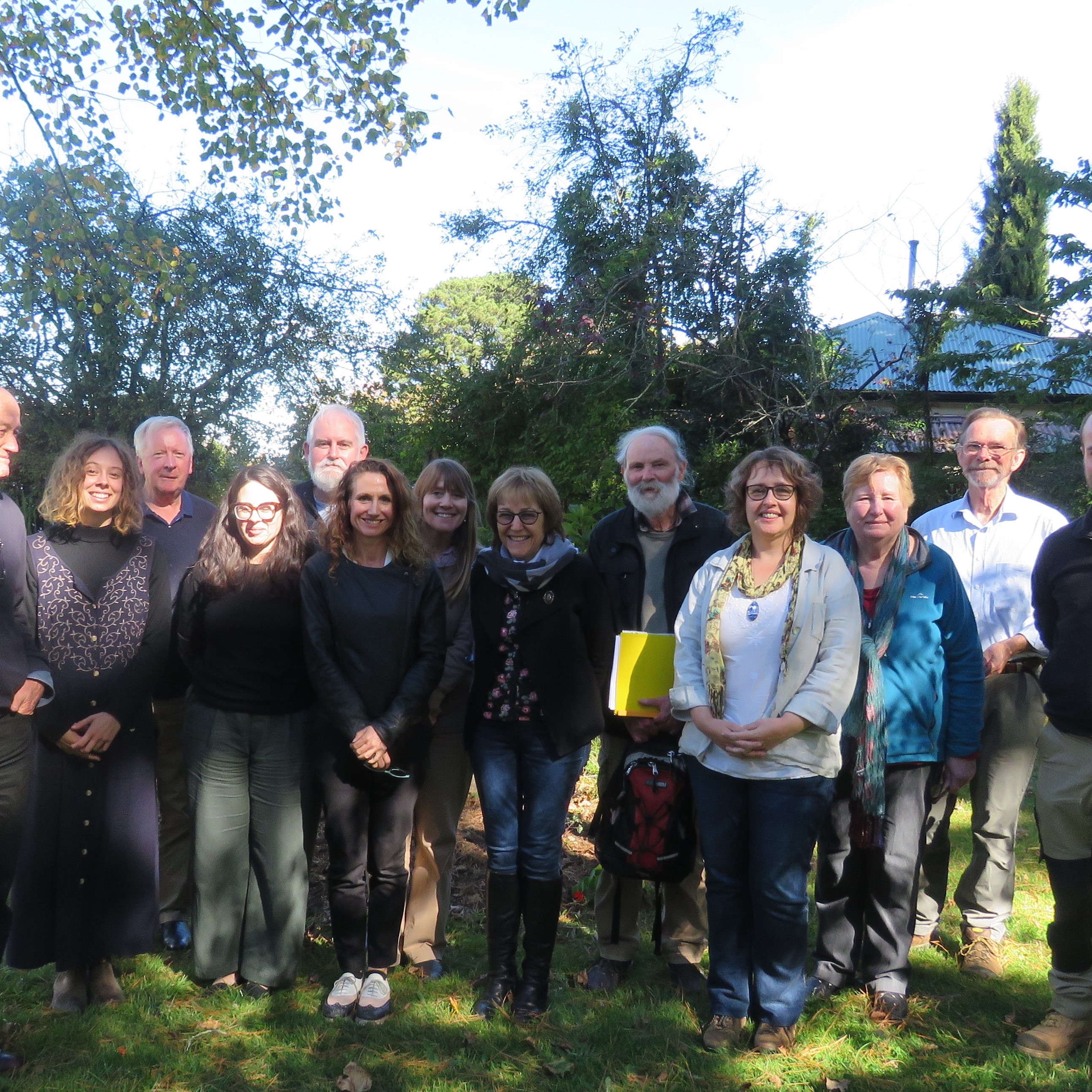About
The Project
The project ‘History, heritage and environmental change in a deindustrialised landscape’ is an Australian Research Council Linkage Project (LP190100900 2020-2022). As the first collaborative and multidisciplinary, scholarly and community-based study of a forgotten 19th century shale-mining settlement in the environmentally and culturally significant Jamison Valley in the Blue Mountains, this project will advance knowledge and enable cross-generational engagement with the history and heritage of an industrial landscape, thereby improving our understanding of the long-term impact of deindustrialisation. By combining archaeological, archival and oral evidence the project aims to provide new insights into everyday working and family life, as well as insight into community, gender, transiency and migration that can contribute to the conservation of this site and its industrial heritage, cultural heritage tourism and education at a time of environmental change. The Project is effective from 4/11/2020 to 30/06/2023. The project is ran by a multidisciplinary of academics, researchers, heritage professionals and student volunteers and interns.
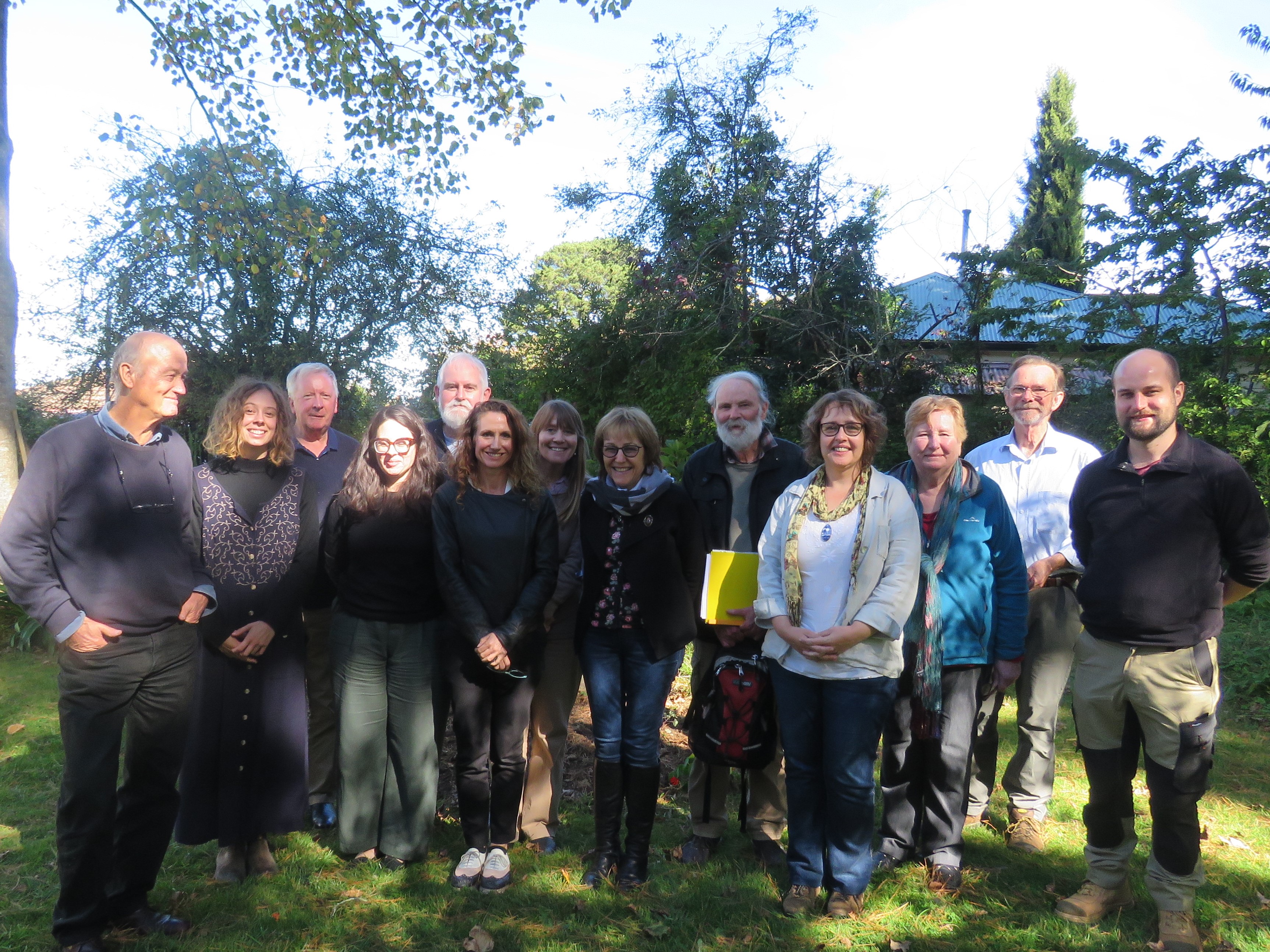
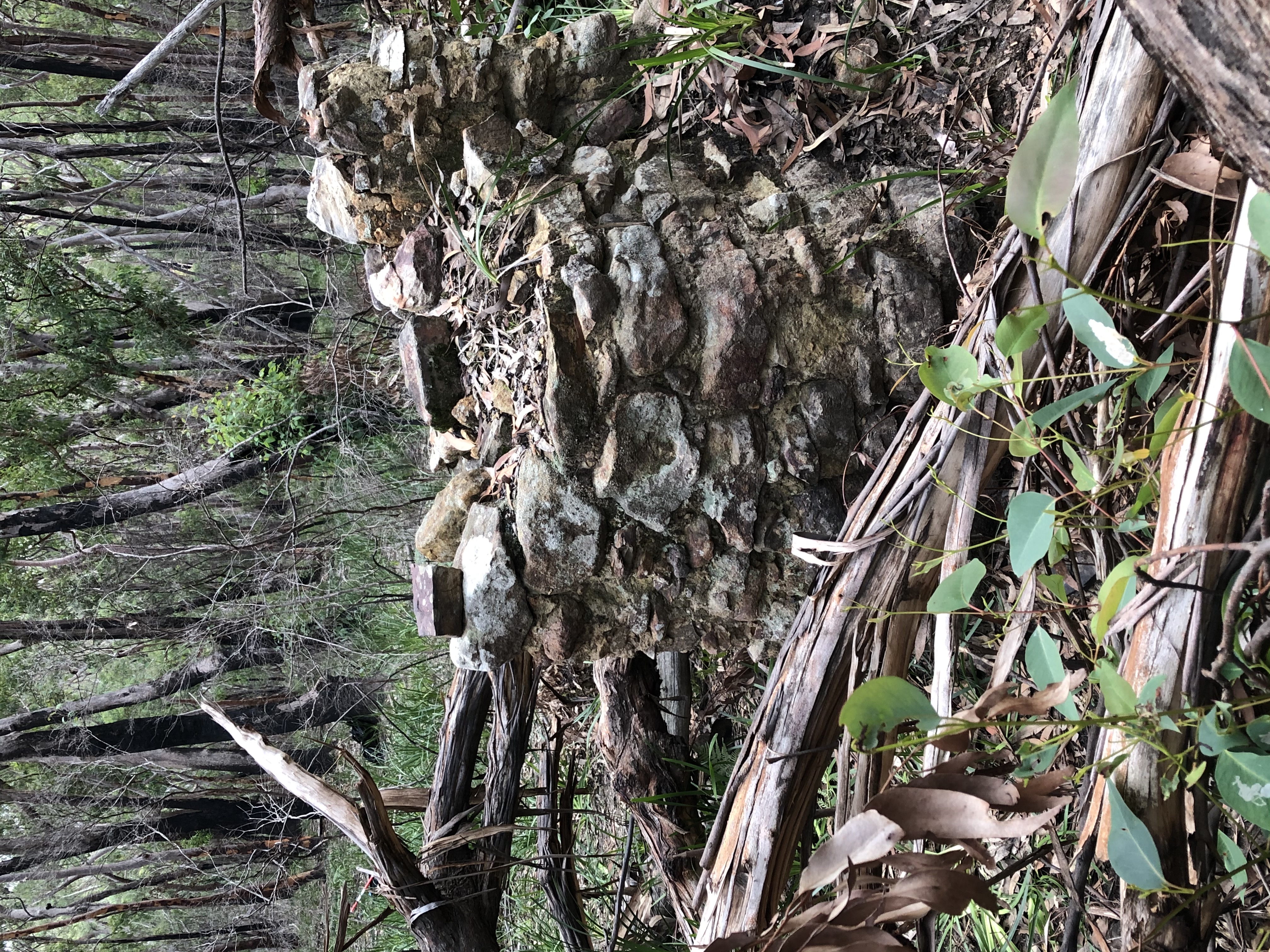
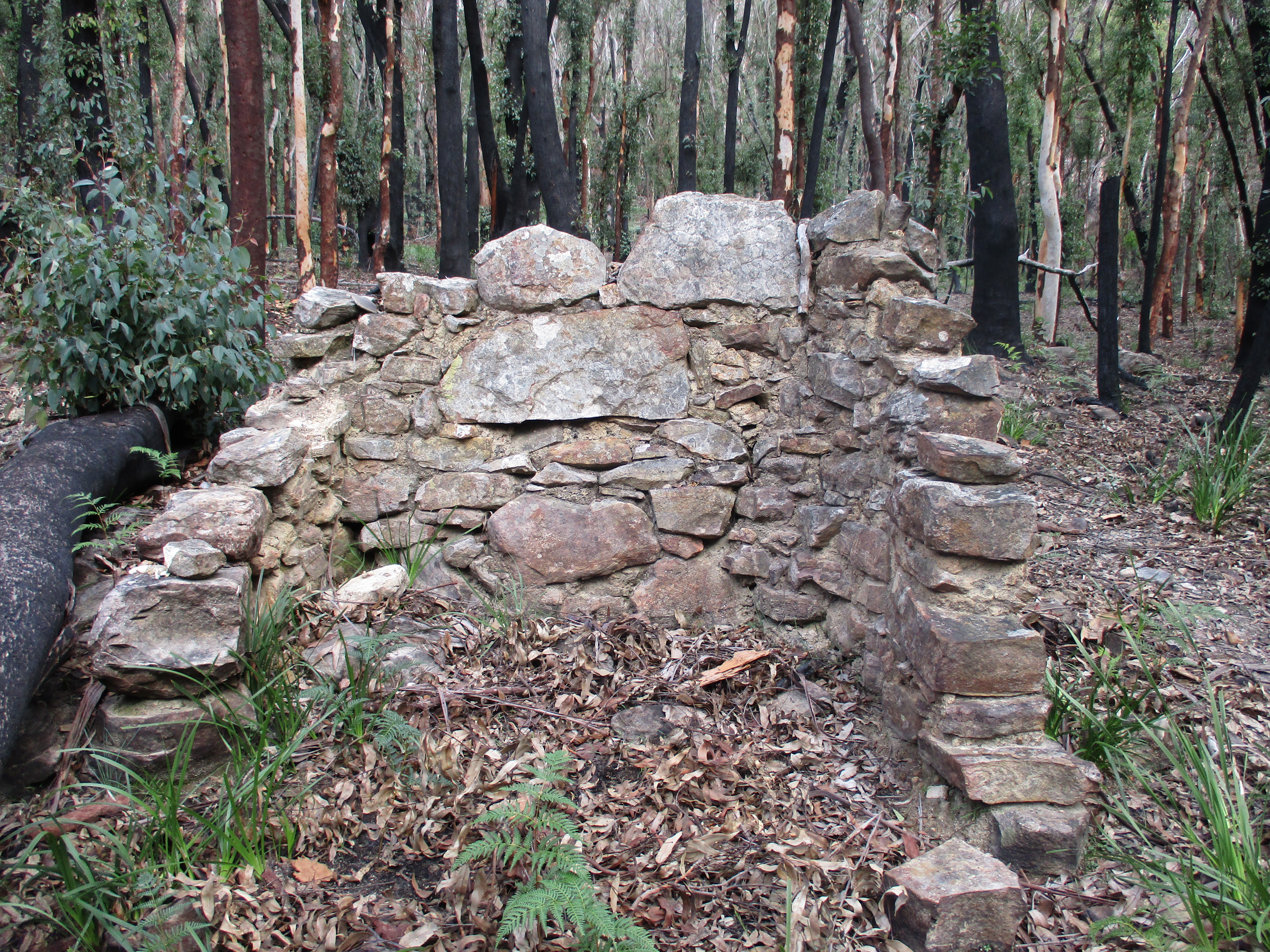
Keep up to date on our research by browsing our research updates and posts here and by viewing our gallery of images here. If you would like to get into contact with the team please contact the Centre for Applied History at MQ via arts.CAH@mq.edu.au, Professor Lucy Taksa via lucy.taksa@mq.edu.au or Associate Professor Tanya Evans via tanya.evans@mq.edu.au. For a list of related research publications please refer to our Resources page, where you will find a reference list to browse and/or download and import into your references manager of choice.
The Team
Tanya Evans - Chief Investigator
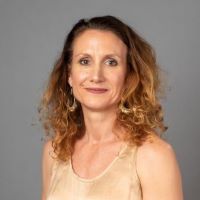
Researcher bio: Associate Professor Tanya Evans is Director of the Centre for Applied History at Macquarie University in Sydney Australia where she teaches public history and modern history. Her books include Making Histories (De Gruyter 2020, with Paul Ashton and Paula Hamilton as co-eds), the prize-winning Fractured Families: Life On The Margins in Colonial New South Wales (New South, 2015); Swimming with the Spit, 100 Years of the Spit Amateur Swimming Club (New South, 2016); with Pat Thane, Sinners, Scroungers, Saints: Unmarried Motherhood in Modern England (Oxford University Press, 2012) and ‘Unfortunate Objects’: Lone Mothers in Eighteenth-Century London (Palgrave Macmillan, 2005). She has published many scholarly articles and book chapters on family history. She curates exhibitions and works as a consultant for television production companies making historical documentaries. She is currently finishing a book on the practice and meanings of family history in Australia, England and Canada and undertaking ARC-funded collaborative work with family and local historians on a social history and archaeological project in the Blue Mountains. Her research profile is available here.
Project role: Tanya will coordinate the historical aspects of the project, involving especially CI Taksa and PI High. She will direct community focus groups, collect existing oral histories, conduct additional interviews, analyse data, manage workshops with research participants and project team members, contribute digital content and lead academic and popular dissemination. Evans has a long track record of contributing to networks of collaborative research involving charities, philanthropic organisations, and NGOs in Britain and Australia, including family, local, and community historians and involving her students. Evans has established national and international public history partnerships with academic and public historians.
Shawn Ross - Chief Investigator
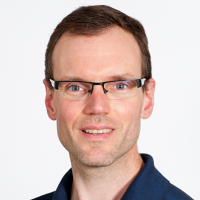
Researcher bio: Shawn A Ross (Ph.D. University of Washington, 2001) is a Professor of History and Archaeology and the Director of Digitally Enabled Research at Macquarie University. Prof Rossʼs research interests include digital archaeology, the history and archaeology of pre-Classical Greece, oral tradition as history (especially Homer and Hesiod), the archaeology of the Balkans (especially Thrace), Greece in its wider Mediterranean and Balkan context, and the application of information technology to research. Since 2009, the focus of Prof Rossʼs work has been fundamental archaeological research in central and southeast Bulgaria, where he supervises the Tundzha Regional Archaeology Project, a large-scale archaeological survey and palaeoenvironmental study. This project culminated in an edited volume published by Oxbow Books in 2018 (The Tundzha Regional Archaeological Project: Surface Survey, Palaeoecology, and Associated Studies in Central and Southeast Bulgaria, 2009-2015). Since 2012 Prof Ross has also directed the Field Acquired Information Management Systems (FAIMS) project, developing data capture and management systems for field research. Previously, Prof Ross worked at the University of New South Wales (Sydney, Australia), the American University in Bulgaria (Blagoevgrad), and William Paterson University (Wayne, New Jersey). His research profile is available here.
Project role: Ross coordinates the project’s archaeological and digital components, working with other team members to organise fieldwork and training in cooperation with BMWHI and NPWS. Ross leads the deployment of digital infrastructure to collect and manage data and promote use of best practice in digital approaches, leads the review and assessment of digital approaches, and supports Crook in the development of a new digital content delivery platform.
Lucy Taksa - Chief Investigator
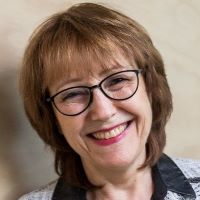
Researcher bio: Professor Lucy Taksa trained as an historian at the University of NSW, where she did her Honours thesis on the social protest accompanying the NSW General Strike of 1917 and her PhD on the diffusion of scientific management to Australia during the late 19th and early 20th centuries and its impact on public sector employment and workplace culture, education, and training. She has been a consultant historian on a range of heritage studies for various municipal councils, the New South Wales Department of Public Works and several heritage consulting firms since the mid-1980s. She has contributed to several oral history projects and historical exhibitions funded by the Australia Council, various trade union bodies, the NSW Migration Heritage Centre, and the Eveleigh Carriageworks, and to educational materials for the NSW Education Department and school excursion kits.
She was Hon. Secretary (1990-1999), Vice President (20000-2006) and President (2006-2009) of the Australian Society for the Study of Labour History and one of the founding members of the NSW History Council in 1995, a member of its Management Committee from 1996, President (2001-2002) and Vice President (2003). From February 2007 until December 2012, she chaired the Board of the NSW State Records and Archives. She has published in numerous disciplines. Her historical research has focused on the history of working life and management, working class kinship, identities and communities, migrant and women’s employment and workers, technical and management education. She has also published on industrial heritage and deindustrialisation in Australia and internationally. Her research profile is available here.
Project role: Taksa works with Evans on the historical aspects of the project. She oversees archival historical research relating to work and working life, collaborates with Evans on focus groups and interviews and supervision of the project’s research assistants. In addition, she contributes to the reconstruction, analysis, and interpretation of familial, work-related and community relationships and collaborates with CI Ross and PI High on the digital aspects of the project.
Susan Lupack - Chief Investigator
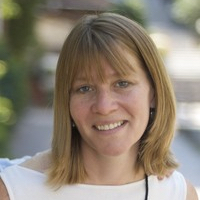
Researcher bio: Susan Lupack was awarded her B.A. with honours in Classics from New York University, and then her M.A. in Latin and her Ph.D. in Classics, with a specialty in Greek and Roman Archaeology, from the University of Texas at Austin. Susan is also an active field archaeologist, and has worked on projects in Italy, Israel, Cyprus, and Greece, including the Pylos Regional Archaeological Survey and the Athenian Agora Excavations. In January 2020 Susan held the first season of the Perachora Peninsula Archaeological Project, which she codirects with Panagiota Kasimi, the Director of Antiquities for the Corinthia; Shawn Ross is the project’s Deputy Director. Among her recent publications is the new Cambridge Guide to Homer, for which she edited the “Homeric World” section and contributed a chapter, and a chapter on the continuity of religion from Mycenaean into Early Iron Age times in the volume edited by Guy Middleton, Transformation and Collapse (Oxbow Books). She has recently begun work on her next book, Mycenaean Religion: The Creation and Expression of a Society’s Ideology. Her research profile is available here
Penny Crook - Chief Investigator, Artefact specialist
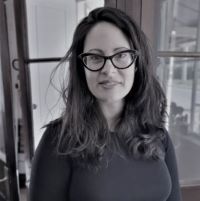
Researcher bio: Penny Crook is a historical archaeologist who specialises in assemblage analysis and material-culture studies. She has over 25 years of experience in archaeological practice, having worked in both academic and consulting spheres. Her research interests include 19th-century material culture, assemblage analysis, consumer studies, urban archaeology, trade catalogues and digital data management. She joined Macquarie University in July 2020 to serve on the leadership team of the ARDC Platform project FAIMS 3.0 Electronic Field Notebooks on a part time basis. She also runs a consultancy practice analysing recently excavated assemblages from historical archaeological sites in NSW.
Project role: Penny is the lead artefact specialist on the project and is looking forward to examining the material culture left behind by miners living in the valley. She will also be overseeing the development of a mobile application to share the historical and archaeological knowledge collected during our fieldwork and archival research.
Steven High - Partner Investigator
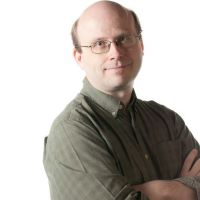
Researcher bio: Steven High is Professor of History at Concordia University’s Centre for Oral History and Digital Storytelling and Vice-President of the Canadian Historical Association. He is an interdisciplinary oral and public historian with a strong interest in transnational approaches to working-class studies, forced migration, and community-engaged research. He has headed a number of major research projects, most notably the prize-winning Life Stories of Montrealers Displaced by War, Genocide and Other Human Rights Violations, and is currently leading the transnational SSHRC-funded partnership project Deindustrialization & the Politics of Our Time. His first monograph, Industrial Sunset: The Making of North America’s Rust Belt (UTP, 2003) earned multiple awards including the Albert Corey Prize from the American Historical Association. Others on this topic include Corporate Wasteland: The Landscape and Memory of Deindustrialization (with David Lewis), The Deindustrialized World: Confronting Ruination in Postindustrial Places (with Lachlan Mackinnon and Andrew Perchard) and One Job Town: Work, Belonging and Betrayal in Northern Ontario. He was recently awarded a Governor General’s History Award in the Popular Media category.
Project role: High is currently a Partner Investigator on the project, aiding interpretation and analysis.
Fiona Leslie - Partner Investigator, Archaeologist

Researcher bio: Fiona Leslie (BSc BAHons, 2000) is a professional archaeologist who runs her own heritage consultancy, Mountains Heritage (MTS Heritage), in the Blue Mountains. Over her 20-year career as a consulting archaeologist, Fiona has prepared numerous heritage assessments in NSW, Qld and Tasmania and, as a long-term resident of the Blue Mountains, has an intimate knowledge and appreciation of its history and heritage. Fiona ‘s interests include archaeological excavation and the history and archaeology of contact period sites in Australia. Through her identification, research and assessment of archaeological sites, Fiona aims to promote community connections and heritage conservation and celebrate heritage places through their interpretation. Fiona is recognised as an Excavation Director by the NSW Heritage Council for heritage items of local and State heritage significance. One of her more recent projects involved the supervision of a large-scale excavation at Victoria Barracks Sydney for Defence Housing Australia. Through this project, significant archaeological remains of the c. 1841 Officers’ Quarters were identified, conserved and interpreted in conjunction with the design and development of new Defence accommodation.
Project bio: Leslie will lead the archaeological excavation of key elements of the Jamison Valley shale-mining settlement. The excavation will be informed by comprehensive archaeological survey led by Parkes and co-ordinated by Ross and Crook. Leslie’s involvement will result in the training and mentoring of tertiary students in archaeological excavation techniques and the design and development of a high-quality digital excavation recording system.
Anne Coote - Research Assistant
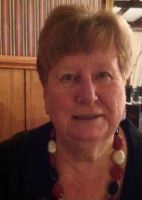
Researcher bio: Dr Anne Coote is a graduate of the University of Sydney and the University of New England, Armidale. Anne’s doctoral research explored how the sense of colonial national identity, evident among the inhabitants of mid nineteenth-century New South Wales, had been shaped by altered popular perceptions of historical time, geographical space and the capacity for sovereignty which were linked, in turn, to the colony’s increasingly literate culture. A similar concern with the way people make sense of the world and their place in it, taken in association with socio-economic and political realities, has contributed usefully to Anne’s understanding of the nineteenth-century trade in specimens of natural history and, more recently, to her study of the Royal Society of New South Wales in the same period.
Project role: As a research assistant on this exciting inter-disciplinary project which aims to shed light on the lived experience of people in a vanished Blue Mountains shale mining community, Anne will be assisting Associate Professor Tanya Evans and Professor Lucy Taksa by digitising and organising archival data, constructing a database of the names and family trees, and facilitating the contribution to this project of local and family historians who have knowledge of and/or a family connection to the people whose lives the project seeks to uncover.
Rebecca Parkes - Partner Investigator
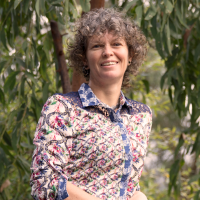
Professional bio: Rebecca is the Director and Principal Archaeologist at Lantern Heritage Pty Ltd. She has over 20 years’ experience as a field archaeologist, and 19 years’ experience in professional heritage management. Bec is a member of Australia ICOMOS, the Australian Archaeology Association and the Australasian Society for Historical Archaeology. Over the past two decades, Bec has worked on sites across SA, NSW and the ACT as well as in South America and Europe. Her expertise in archaeology and heritage management comes not only from her employment in consulting archaeology, but also from an ongoing involvement in lecturing and practical training at the Australian National University.
